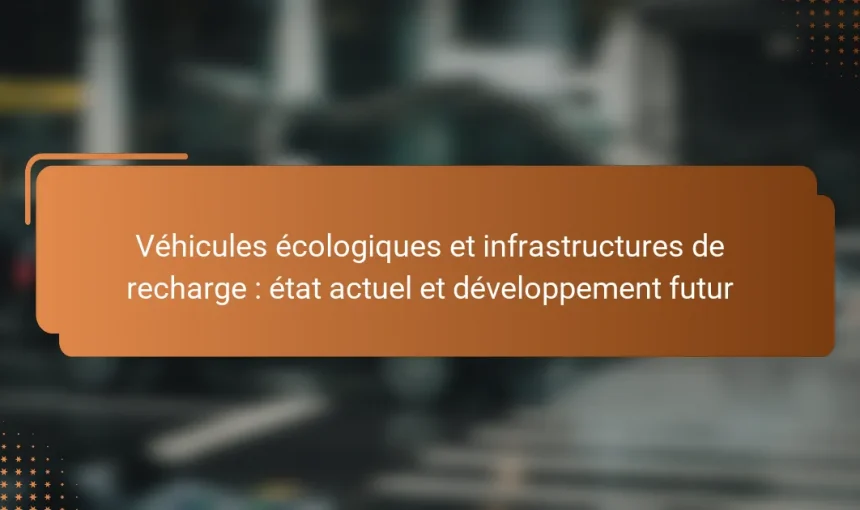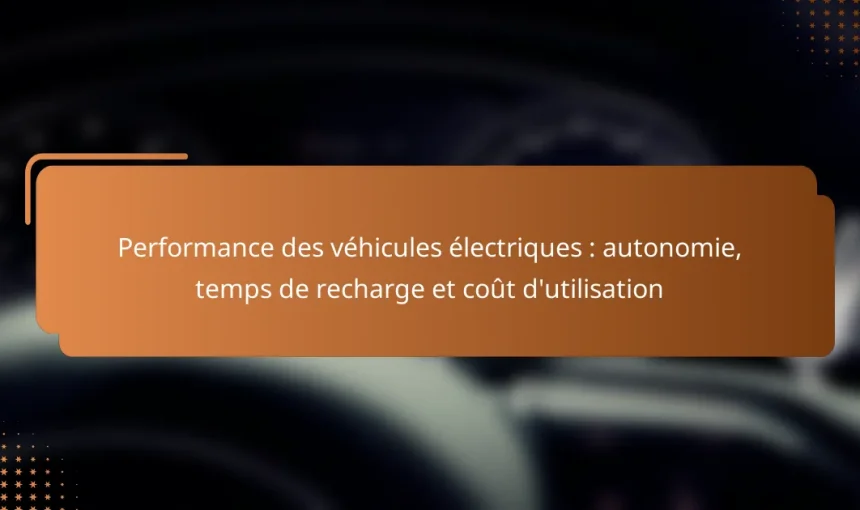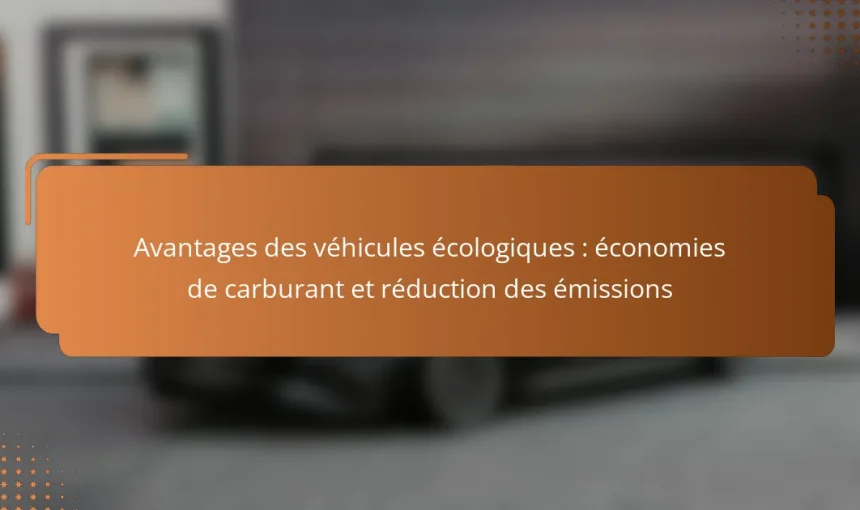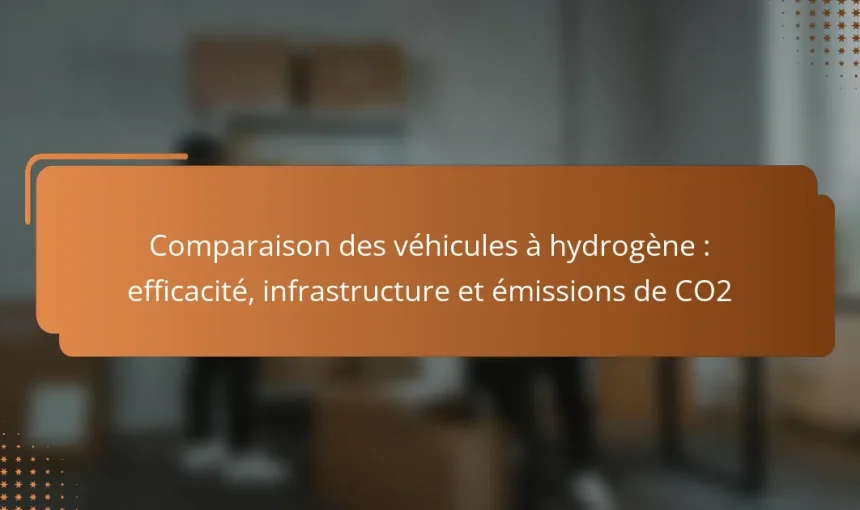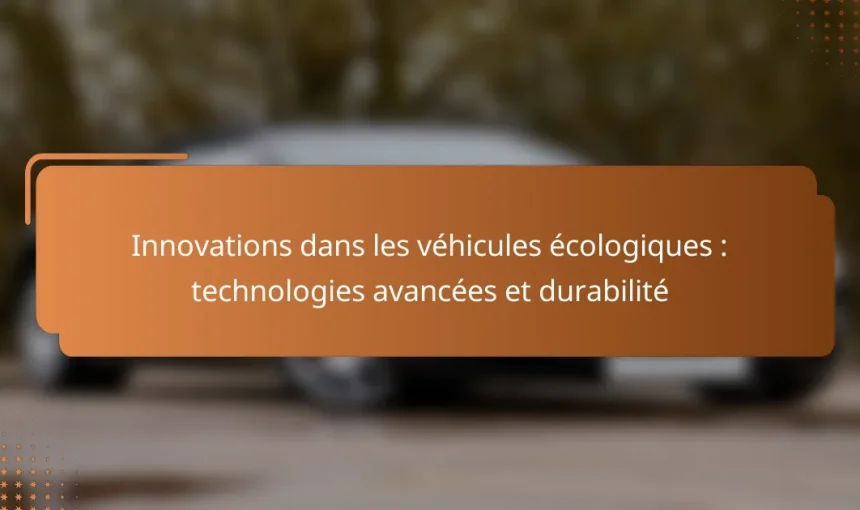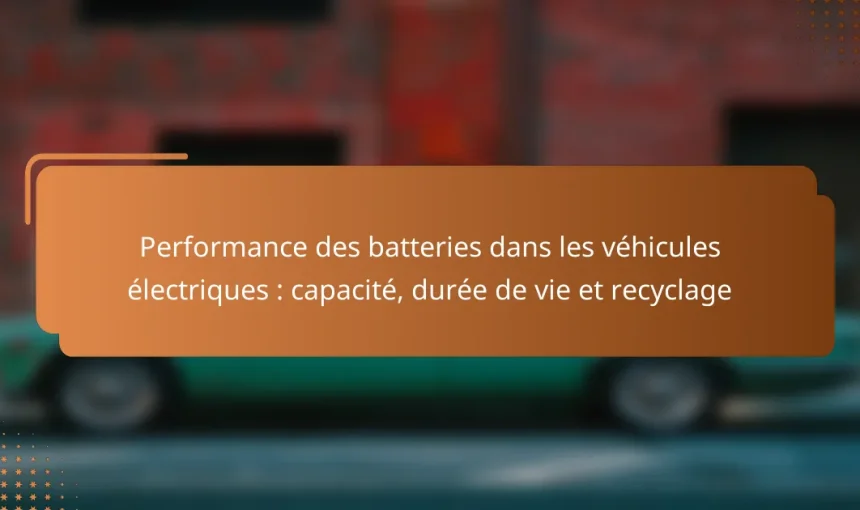Ecological vehicles, including electric, hybrid, and hydrogen cars, are designed to reduce greenhouse gas emissions and play a crucial role in combating climate change. The global adoption of electric vehicles reached 10% of total sales in 2021, highlighting a significant shift towards sustainable transportation. Essential to this transition are charging infrastructures, which encompass both public […]
The total cost of ownership for eco-friendly vehicles encompasses several key factors, including purchase price, maintenance costs, and resale value. While the initial purchase price of eco-friendly vehicles may be higher than traditional vehicles, savings from fuel efficiency and government incentives can offset this difference. Maintenance costs tend to be lower due to fewer moving […]
Hybrid cars in France are vehicles that combine an internal combustion engine with an electric motor, enhancing energy efficiency and reducing CO2 emissions. These vehicles can operate in electric mode, gasoline mode, or a combination of both, making them versatile for various driving conditions. The article explores the significant growth of the hybrid car market […]
The performance of electric vehicles (EVs) is primarily evaluated through three key factors: autonomy, recharge time, and cost of use. Autonomy, or the driving range, varies by model, with some vehicles like the Tesla Model S achieving up to 610 kilometers. Recharge time depends on the energy source, with rapid charging taking approximately 30 minutes […]
The evaluation of ecological vehicle performance focuses on measuring energy efficiency and environmental impact through various criteria, including fuel consumption and emissions of CO2 and other pollutants. Testing is conducted according to specific standards set by organizations like the International Organization for Standardization (ISO) and includes fuel consumption tests, emissions assessments, and electric range evaluations. […]
Ecological vehicles, including electric cars, hybrid cars, and hydrogen vehicles, provide significant advantages such as reduced greenhouse gas emissions and decreased reliance on fossil fuels. Electric vehicles produce zero emissions during operation, while hybrids and hydrogen vehicles enhance fuel efficiency and emit only water vapor, respectively. Additionally, these vehicles often lead to financial savings for […]
The article focuses on the impact of ecological vehicles on air pollution, highlighting various studies that demonstrate their environmental benefits. Ecological vehicles, including electric and hybrid models, significantly reduce greenhouse gas emissions and improve air quality in urban areas. Key findings indicate that electric vehicles can cut CO2 emissions by up to 70% compared to […]
The article focuses on the comparison of hydrogen vehicles, evaluating their energy efficiency, hydrogen storage capacity, and driving range. Key criteria include the vehicles’ energy conversion efficiency, which ranges from 60 to 70%, and their driving range of 500 to 700 kilometers. Additionally, the article discusses the importance of hydrogen refueling infrastructure, highlighting the rapid […]
The article focuses on innovations in ecological vehicles, highlighting advanced technologies aimed at reducing emissions and enhancing energy efficiency. Key advancements include high-capacity lithium-ion batteries that extend vehicle range, hybrid systems that combine internal combustion engines with electric motors to optimize fuel consumption, and energy recovery technologies like regenerative braking. It also discusses the use […]
The performance of batteries in electric vehicles is critical for their efficiency and usability, encompassing key factors such as capacity, lifespan, and recharge time. Battery capacity, measured in kilowatt-hours (kWh), indicates how much energy can be stored, directly affecting vehicle range. Lifespan is vital, as it determines the number of charge-discharge cycles a lithium-ion battery […]
